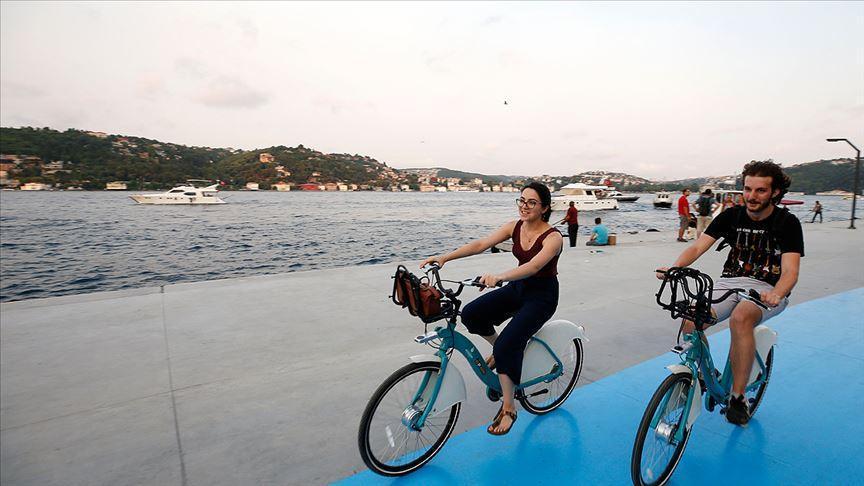Turkey launches campaign to encourage bicyle usage
ISTANBUL

Turkey, with cycle lanes of 1,048 kilometers in length across 17 cities, will undertake its first promotional campaign called “Get Turkey Cycling!” with a European Union (EU) fund that aims to encourage bicycle usage in urban areas.
The non-profit and independent NGO affiliated to Washington D.C.-based World Resources Institute (WRI), the WRI Turkey Sustainable Cities (WRITRSC) - legally registered as ‘Sustainable Transport and Cities Association’ in Turkey - applied to obtain EU funding for the campaign.
In the “Get Turkey Cycling!” campaign, which will run from April 1, 2019 to June 30, 2020, WRITRSC will collaborate with the municipalities of İzmir, Eskişehir and Lüleburgaz to establish an urban cycling communication campaign.
These municipalities were chosen because of the progress they made to date on developing cycle lanes. The campaign will involve the provision of theoretical training on promoting bicycle usage as a means of urban transportation to municipality representatives after which practical training will be undertaken.
A field study to observe the best practices in the Netherlands with the Dutch Cycling Embassy will be organized for participants from the selected municipalities, relevant cycling NGOs in that area, the Ministry of Environment and Urbanization and the Union of Municipalities of Turkey.
Following a needs assessment for each region, a two-day training program will be arranged for each municipality covering their requirements in preparation for an effective communication plan taking into account best practices observed in the field study.
Two-month mentorship post training will support the municipalities in the development and implementation of their campaigns to promote urban cycling.
“Bicycle roads contribute to both decreasing the intensity of traffic and air pollution as well as in the fight against climate change. Thus, bicycle roads are indeed irreplaceable in urban areas,” Güneş Cansız, director of WRITRSC told Turkey’s state-run Anadolu Agency.
Despite long road lengths in Turkey, cycle lanes are not practically integrated with urban transportation, which makes the use of the bicycle difficult for daily transport.
Regardless, she maintains that a large number of Turkey’s population prefers bicycles as a means of transport, particularly for short distances.
The advantage of bicycle transport can be seen through the reduction in carbon dioxide emissions.
Calculations show that one car emits 115 grams of CO2 per kilometer, which could be prevented if a cycle journey is taken as an alternative. Consequently, over a five-kilometer journey, a total of 575 grams of CO2 could be prevented through bicycle use.
Of the over 1,000 kilometers of cycle lanes in the country, the Central Anatolian province of Konya is by far the cycle kingdom with 515 kilometers. Istanbul follows with just 160 kilometers and Eskişehir with 65 kilometers.
















